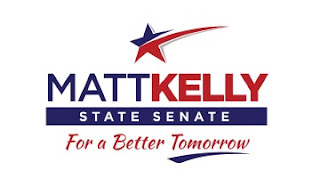The Senate proposal boosts Rainy Day Fund by $356M
The Massachusetts State Senate passed a $779.8 million closeout supplemental budget for Fiscal Year 2019 today, after adding $8.9 million during floor debate. It also includes a transfer of $356 million to the state's stabilization fund, thereby continuing to build the Commonwealth's Rainy Day Fund and placing the state on firmer financial footing. At approximately $3.2 billion, the fund would reach its highest level to date.
"I'd like to thank the Senate Chair of Ways and Means, Senator Rodrigues, for his leadership throughout the 2019 fiscal year budget process, and thank all of the Senate members for their thoughtful contributions to this final closeout supplemental budget," stated Senate President Karen E. Spilka (D-Ashland). "I am proud of the commitment to education funding, early voting, transportation improvements, community-based Family Resource Centers, workforce development and public health that this supplemental budget represents."
"With today's passage of this supplemental budget, the Senate is responsibly closing the books on Fiscal Year 2019," said Senator Michael J. Rodrigues (D-Westport), Chair of the Senate Committee on Ways and Means. "While bolstering our Rainy Day Fund, we make a number of meaningful investments to increase educational opportunity, improve our state's aging infrastructure, confront worsening congestion, reduce our carbon footprint, and address public health issues relative to Eastern equine encephalitis and toxic PFAS chemical contamination."
The Senate's supplemental budget furthers the chamber's commitment to ensuring all children have access to greater educational opportunities. Consistent with the Senate's long-standing support of increased investments in education, the supplemental budget dedicates $50M to fund educational programming costs associated with the Student Opportunity Act. In addition to increasing educational opportunities, the Senate's budget ensures student safety and mental well-being through separate $10M investments in both school behavioral health services and enhanced public school safety and security measures, respectively. Additional education investments include:
· $30M for targeted assistance for school improvement
· $20M for the Endowment Incentives Program for public higher education institutions to provide an incentive for campuses to leverage private contributions
· $10M for campus safety and security infrastructure grants to institutions of higher education
· $5.1M to assist school districts with regional school transportation costs
· $2M for special education circuit breaker reimbursements
· $1M in rural school aid
The Senate's closeout budget makes a number of targeted investments to help communities update aging transportation and water infrastructure, and improve public health. The supplemental budget invests $60M in Chapter 90 funding to support improvements of local roads and bridges. It also provides $5M for a new pilot program to tackle increased traffic congestion, which is currently threatening quality of life and access to jobs. Additional investments to support our communities include:
· $50M for the MBTA capital acceleration program
· $35M for the Massachusetts Clean Water Trust to help finance improvements to local water systems
· $28.4M for targeted per- and polyfluoroalkyl substances (PFAS) contamination remediation of public water supplies and ongoing monitoring
· $5M for culvert and dam repairs
· $5M for costs associated with mosquito spraying to reduce the risk of Eastern equine encephalitis (EEE)
· Authorizes $5M in grants for de-leading projects at early education facilities, childcare centers and elementary schools
The Senate's budget addresses the pressing issue of climate change by investing $5M for a program to provide consumer rebates and other economic incentives to reduce carbon emissions. In addition, the proposal dedicates the use of $32M in Regional Greenhouse Gas Initiative (RGGI) funds per fiscal year to promote the purchase and lease of electric vehicles, and to support the Green Communities program through December 31, 2021.
Finally, the supplemental budget reinforces the Senate's belief that voting is key to a healthy democracy by authorizing an early voting period for the 2020 presidential primary, to begin on Monday, February 24, 2020 and end on Friday, February 28, 2020. It also funds $1.25M for early voting implementation.
Other Notable Spending Items
The supplemental budget passed by the Senate today commits $3M to bolster a network of community-based Family Resource Centers that offer a wide range of family, child, and community based services. It also provides an additional $3M for grants to support the agriculture, commercial fishing and cranberry growing industries, vital components of the Commonwealth's economic fabric.
Finally, recognizing the need to prioritize public safety and raise awareness about incidences of hate, the Senate's closeout budget provides $1M for a statewide grant program to secure non-profit institutions at risk of terrorist attacks, and $400,000 for a new statewide grant program focused on the prevention of hate crimes in public schools.
The closeout supplemental budget for Fiscal Year 2019 passed by the Senate also includes:
· $20.5M for the Chapter 257 rate reserve to support workforce development in the human services sector
· $16.4M for program and facility improvements related to section 35 of chapter 123 civil commitments
· $16.3M for the Safety Net Provider Trust Fund
· $10.1M for homemaker and home health aide rate add-ons
· $10M for the creation of extremely low-income housing units through the Affordable Housing Trust Fund
· $9.9M for nursing home facility rates
· $8.7M for National Guard tuition and fee waivers
· $5.7M for the Committee for Public Counsel Services (CPCS), including $3.8M to provide representation in underserved parts of the Commonwealth
· $5M for gun violence prevention grants
· $4M for Regionalization Incentive Grants
· $3.4M for the Workforce Competitiveness Trust Fund
· $1.25M for Early Voting
· $630K for Mass Rehabilitation Commission assistive technology
· $195K for shark tagging and monitoring in the Cape Cod region
In addition, the supplemental budget authorizes the growing of hemp on Agricultural Preservation Restriction (APR) land.
The Senate's Fiscal Year 2019 closeout supplemental budget will now be reconciled with the House's version, which was passed last week.



